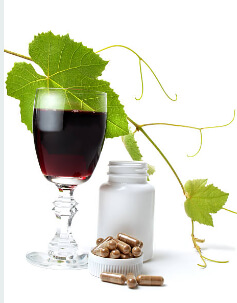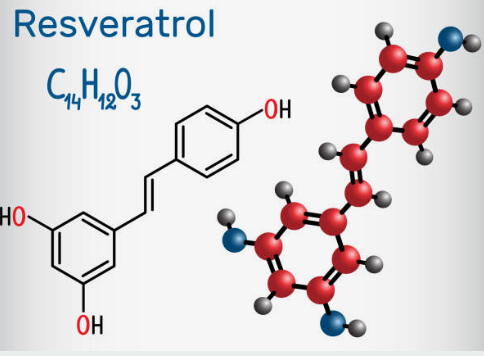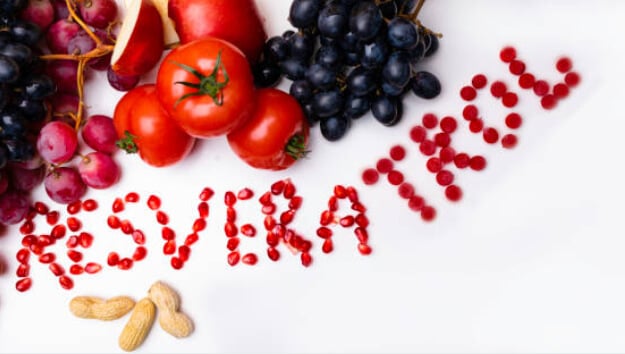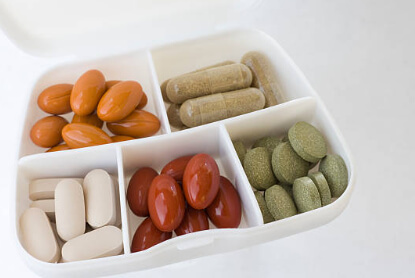Resveratrol wine or as supplements?
It is possible to supplement with Resveratrol in dosages ranging from 250 mg to 1 g daily. You are likely to ask yourself, “Can I get the equivalent amount of Resveratrol through the food? Perhaps even alcohol?” The quick answer is “no” because of the amount of Resveratrol in food (or wine). When it comes to alcohol, moderation is the key. Excessive drinking can affect your life expectancy if you aim to “live as long as possible.” [1]
Is red wine good for you?
Red wine can become part of a healthy diet if consumed in moderation. However, the notion of red wines as a panacea does not stand up. The old wisdom of “people who drink wine have a longer life” may be quicker due to the positive results of healthy eating practices like those of the Mediterranean Diet: an abundance of nutritious vegetables, fruits, and legumes and a low intake of processed fat from red meat, as well as complex carbohydrates. (And you should opt for red wine is a better choice than other forms of alcohol.)
While we all recognize that a small amount of alcohol is not suitable for your health, we also acknowledge that Resveratrol has its worth. Thus, while you can get Resveratrol from red wine, you will most likely benefit from daily resveratrol supplements. [2]
Why should I supplement with Resveratrol that is Micronized?
“The red wine grapes are resveratrol-rich and have been proven to boost and maintain people's health and prolong their lives. The research that explains the health benefits of drinking wine is, at the very least, unclear.
Based on various longevity research, we have developed the most sophisticated resveratrol formula Micronized Resveratrol. It contributes to promoting gene expression in children as well as healthy insulin sensitivity. It also promotes a healthy inflammatory response as well as cardiovascular fitness.” [3]
What exactly is the use of Resveratrol?
Resveratrol in its supplement form (usually trans-resveratrol) offers a variety of potential health benefits. The most important one is longevity. However, to fully understand how Resveratrol can help you live longer, you should be aware of the effects of calorie restriction on your well-being. [4]
It has been documented that calorie restriction diets may help to live longer. A “calorie-restricted eating plan” is when you consume much fewer calories (some claim as low as 60 percent) than you usually get from your food and yet receive all the essential nutrients and vitamins by eating high-nutrient meals and supplements.
However, these diets may be challenging to follow. It is good news that it seems that resveratrol supplementation can mimic the effects of a calorie-reducing diet.
Resveratrol stimulates genes similar to those that light up while on a low-calorie diet. Genes that influence the effects of aging on your body could improve brain, heart, and liver health and promote a healthy inflammatory response.
Resveratrol is a powerful antioxidant. Free radicals that are oxidants generated by cell metabolism may create oxidative stress throughout the body, including your body, heart, brain, and even skin, which may cause physiological signs of aging. Resveratrol offers protection against oxidative stress. [5]
References:
- https://www.mdpi.com/1660-4601/19/5/3110
- https://www.medrxiv.org/content/10.1101/2022.01.26.22269881v1
- https://link.springer.com/article/10.1186/s41120-022-00058-1
- https://www.thieme-connect.com/products/ejournals/html/10.1055/a-1555-2919
- https://www.tandfonline.com/doi/abs/10.1080/08941939.2021.1988771?cookieSet=1








